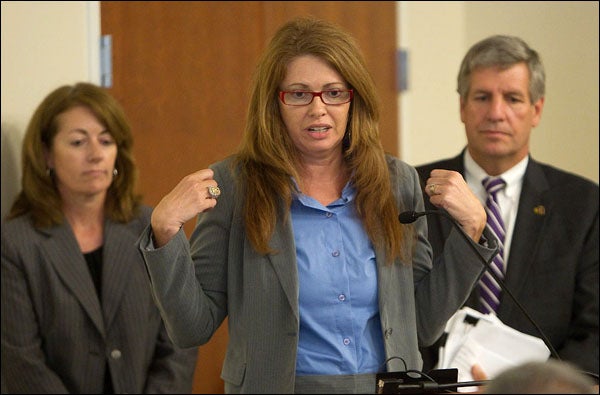NOT AT ECU
An internal audit at East Carolina University looking for clusters of athletes across courses or majors in the past 12 months found no instances of academic fraud, administrators said today.
The ECU Board of Trustees got an overview Thursday of the review, which was prompted by the continuing scrutiny of the Department of African and Afro-American Studies at UNC Chapel Hill.
“Has ECU cobbled together classes to benefit the student athletes, or have we set up specific classes…with low standards?” said Stacie Tronto, director of the Department of Internal Audit. “We can provide you with a reasonable assurance that this is not going on here at ECU. I’m very comfortable with the results of our review.”
Tronto said her department examined each course in which student athletes were enrolled from summer 2011 through spring 2012. Course sections with a higher percentage of student athletes resulted primarily from practical factors such as course times and career opportunities, she said.
For example, Tronto said there were high numbers of student athletes in course sections offered at times that did not conflict with practice. And, courses in sports management had heavy enrollment because that concentration enabled a student to continue working in their sport after graduation, she said.
“Anything that stood out to us, we did a detailed review of it,” she said.
At the same time, administrators also examined how class syllabi are reviewed and approved, and the criteria for students participating in independent study courses, said Senior Associate Provost Dr. Austin Bunch. He concluded that ECU has minimized the opportunities for such abuse as has emerged on other campuses.
ECU has a process in place to prevent academic fraud, said Provost Marilyn Sheerer. A critical step, she said, was the decision in 2010 to have the academic affairs division oversee academic support for student athletes instead of athletics.
“I think it all comes back to what kind of operating policies and procedures do we have in a department, and does the chair or the staff monitor what’s out there,” she said.
“I think the key is really monitoring and spot-checking the process,” said Board member Danny Scott, who asked multiple questions during the presentation. “If we don’t do that, human nature is that we tend to get lax…and you have issues like those that occurred at Carolina. No one around this table or university wants to see that happen to the Pirate nation.”
